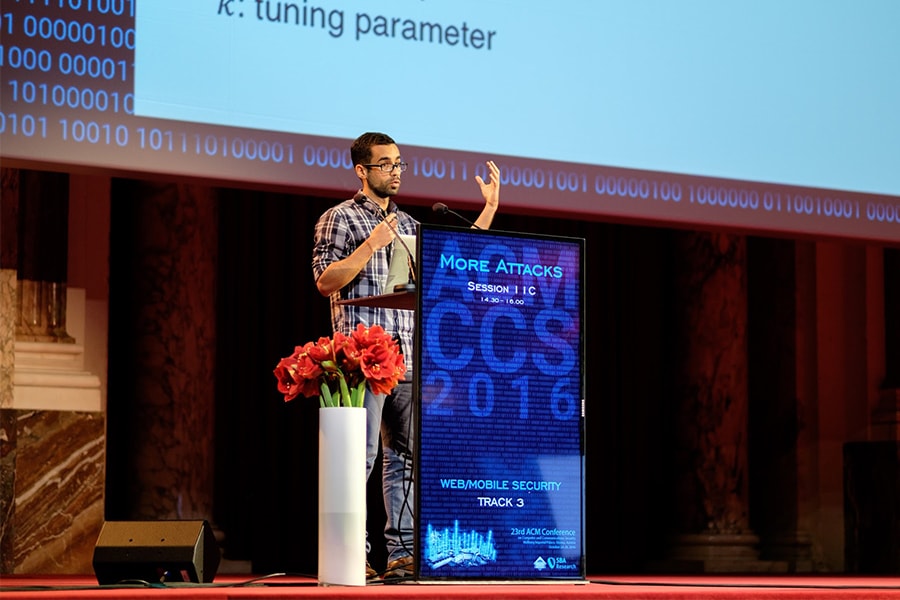
Mahmood Sharif Named 2018 Symantec Fellow
Mahmood Sharif, a doctoral student in Carnegie Mellon University's Department of Electrical and Computer Engineering, has earned one of three national Symantec Research Labs Graduate Fellowships this year.
Chosen for his proven potential to conduct innovative research with real-world value in industries where Symantec — a cybersecurity software company — conducts business, Sharif will receive a $20,000 grant to continue his research on machine learning and cybersecurity in collaboration with the company. He also earned an internship pairing him with a company mentor with extensive research experience. He is the seventh CMU graduate student to be selected since 2007.
A large portion of Sharif's work, conducted in the CyLab Security and Privacy Institute under the guidance of College of Engineering professors Lujo Bauer and Nicolas Christin, focuses on machine learning algorithms in computer security and privacy. In his research statement for the fellowship, Sharif expressed his ambitions to make machine learning-based systems more secure and to use machine learning to predict impending security threats.
A primary focus in his research has been on evasion attacks, in which an attacker crafts inputs used by a machine-learning algorithm to return a desired result. One type of facial-recognition evasion, known as dodging, involves a user disguising their true identity to evade being recognized by security systems. In other cases, attackers might attempt to impersonate someone else to gain access to sensitive information. Understanding the method by which the threat is posed is crucial in staying one step ahead of attackers.
"What we try to do is understand the different forms that these evasion attacks can take, and then make better algorithms to prevent these types of attacks against machine learning, to build more safe and secure systems," Sharif said.
He also focuses on improving computer defense systems. Most current defenses are reactive or focus on long-term prediction. Sharif's goal is to give internet browsers earlier warnings so they can effectively counter security threats. To this end, he's pursuing a different form of threat prevention - short-term prediction. To create a more proactive form of defense, short-term prediction uses user data and browsing preferences to detect potentially risky user behavior.
"I'm seeing your behavior, and if it deviates from normal and starts to resemble what usually leads to your exposure to malice, then I, as a security provider, could infer that that's probably when I should intervene," Sharif said.
The added seconds that security providers gain from using contextual information to predict threats can interrupt users' internet connection, thus preventing a potential security breach.
"The eventual goal is, overall, to be able to build more secure and safe systems," Sharif said.